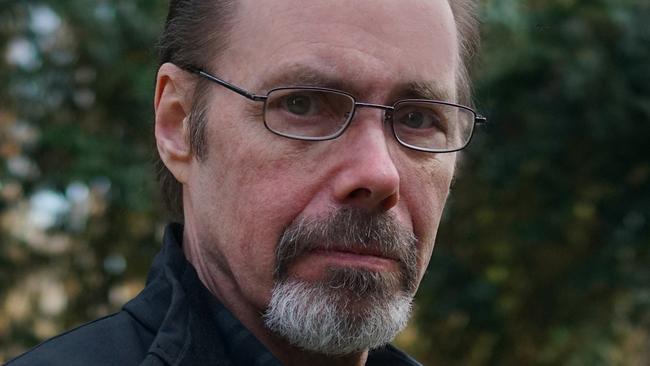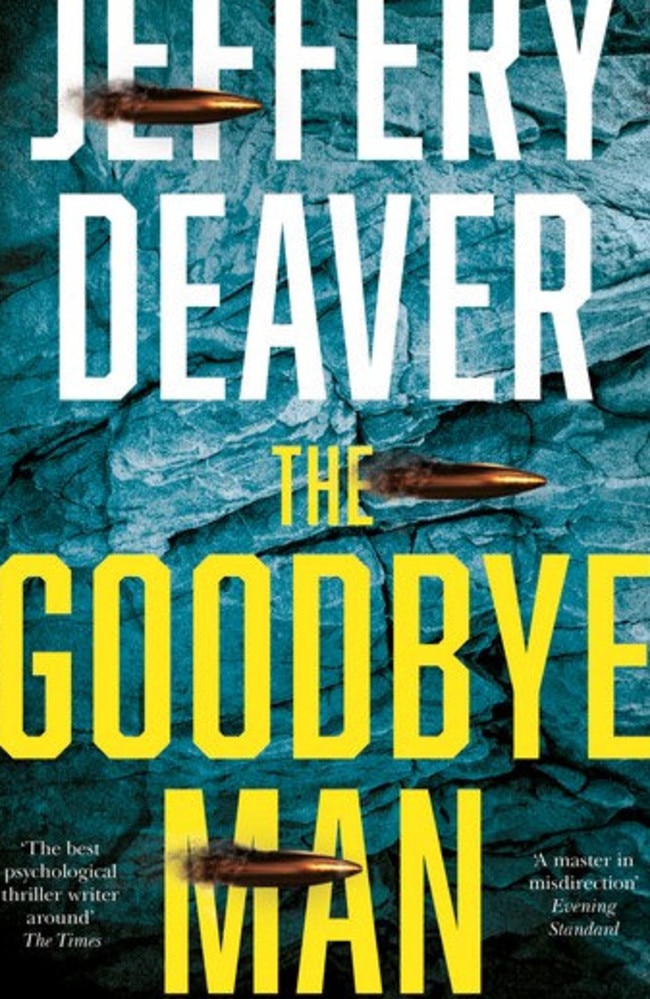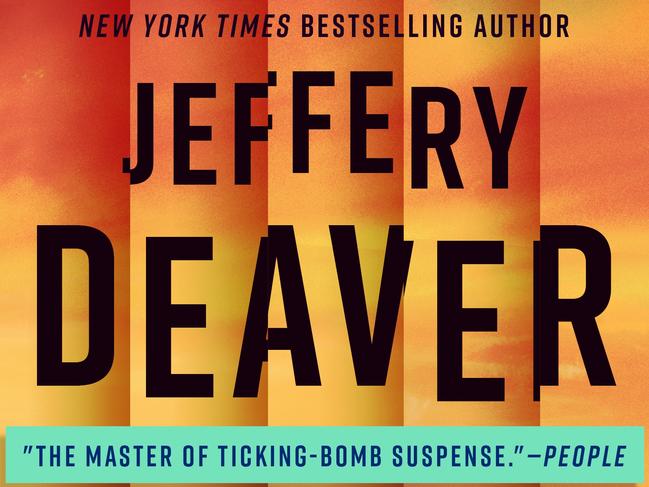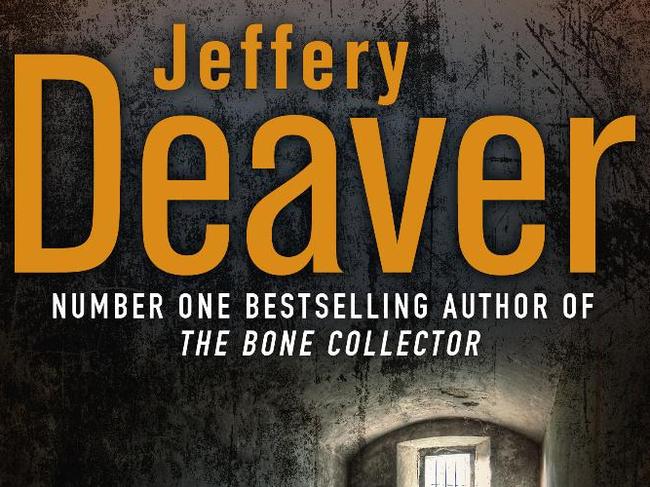Best-selling author Jeffrey Deaver shares some of his secrets
Page or screen, everyone loves a good thriller. But why do they play with our emotions and keep us so engrossed? From multiple endings to Mafia twists, global star Jeffery Deaver reveals all.

Books
Don't miss out on the headlines from Books. Followed categories will be added to My News.
When it comes to thrillers, JEFFERY DEAVER is one of the best in the business, with fans all over the world. His latest book, The Goodbye Man, has been hailed by critics as “balancing suspense and plausibility perfectly” and called “a perfect jumping-on point” for new readers. With that in mind, we asked the US author to give us a quick masterclass on what makes a ripping read. Enjoy.
My goal in writing novels and short stories is to give my readers an emotionally intense
experience. I would like my books to be one-sitting reads, if possible.
I don’t want this response from readers: “Well, Deaver’s book was interesting.”
I want to hear: “Phew, I survived!”
This is why I write thrillers. Of the forty-plus novels I’ve penned, the vast majority — and
all of my recent works — have fallen into this genre.
So what exactly is a thriller? One way to define them: They’re tales that ask what is
going to happen, as opposed to asking what happened.

Murder mysteries are the latter: They unravel the puzzle of, say, who killed John Doe and
why. I’ve written mysteries and love the genre but I prefer to read a novel that races breathlessly from page one to the end, and, as I tell my students, you should write the type of book you prefer to read. (My short stories can fall into either category and follow a slightly different set of rules; here I’m speaking of novels.)
The definition of thriller I keep in mind is this: It’s a fictional work involving crime and featuring realistic characters, who are continually confronted with questions and escalating
conflicts, which are ultimately answered and resolved to the readers’ satisfaction.
Okay, that’s a mouthful. How does it translate into practice? I’ll run through a brief list
of some of the techniques I keep in mind when I’m writing a thriller.
● Planning ahead. Many authors don’t outline but I could never write a novel without
doing so. I spend months plotting out the story; my outlines run anywhere from 100-150 pages and contain every detail of the plot and subplot. For me, just starting a book and seeing where the story goes is a waste of time (I’ve tried it), and produces a lumbering unfocused story. Thrillers have to be choreographed and structured to achieve the greatest impact, and outlining is the only way I can achieve that. Also, when you outline you can see early in the process that what seems like a great idea for a book is, in fact, not one, and you can move on to a better project.

● Compressing the time. I want the books to sprint, so I set the story over as few days as
possible. One of my novels — Praying for Sleep — unfolds almost in real time.
● Questions and conflicts. I make sure the reader wonders from the very beginning — and
frequently thereafter — what is going to happen next? The plot and every subplot should be filled with question marks. I also make sure to answer every question and resolve every conflict. Ambiguity isn’t emotionally satisfying. And when I say in my definition “resolved to the readers’ satisfaction”, I don’t mean happy endings (though that’s my personal preference); tragedy evokes solid emotion too in the genre. Just keep one word in mind if you want to kill off your main character: sequel.
● Big picture/narrow focus. Thrillers should be about large topics: A serial kidnapper
terrorising New York (The Bone Collector); the dangers of data mining (The Broken Window); a mysterious cult (The Goodbye Man). But I keep the book grounded in the stories of relatively few individuals.

● The unexpected. I use frequent internal reversals, where, as an example, we learn at the
end of chapter three that our detective hero is actually working for a Mafia boss. And I make
sure every book has surprise endings. Yes, that’s “endings” plural. My main plot will appear to end in a logical resolution several chapters before the last page. Then that storyline takes another unexpected turn and, following that, a final one. Each of the subplots, too, must have its own surprise ending. I always play fair and, early in the book, plant clues that will explain the twist, so readers don’t feel cheated.
● Living, breathing characters. I read once that the part of our brain that responds to real
human beings is the same part that responds to fictional characters. The more realistic the folks who populate the novel, the greater will be the readers’ engagement with them and therefore with the story.

● Beyond the crime. The conventions of thrillers allow — even encourage — storylines
other than the core criminal incident that’s the backbone of the novel. I bring up social and
geopolitical issues (though don’t preach) and introduce subplots that I refer to as soap operas:
those involving the characters’ personal lives.
A few years ago I was interviewed by a radio announcer while I was on book tour. He
was talking about my whipsaw plots, twists and reversals. My sense was that he preferred more leisurely and literary crime fiction. He looked over the microphone and asked pointedly, “Mr. Deaver, what do you say to the charge that as a writer you manipulate your readers?”
My reply was: “I say thank you.”

SURPRISE ENDING
And that, dear readers, is why Jeffery Deaver is a master of his craft; and it’s also why his new release, The Goodbye Man, is our Book of the Month — so you get it for special 30 per cent discount at Booktopia with the code GOODBYE. Please drop by The Sunday Book Club group on Facebook to discuss thrillers, chillers, blood-spillers and all your fave genres and titles — you may even run into some famous authors there.
